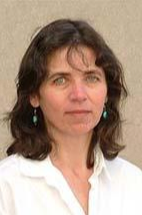
Research
The synthesis of functional mRNA in eukarya involves transcription by RNA Polymerase II (Pol2) and processing of the nascent transcripts by capping, splicing and polyadenylation. A key player in regulating and coordinating all steps in mRNA synthesis is the C-terminal domain (CTD) of Rpb1, the largest subunit of Pol2, which consists of tandem heptapeptide repeats (Tyr1-Ser2-Pro3-Thr4-Ser5-Pro6-Ser7). The CTD is essential for viability because it recruits proteins that regulate transcription, modify chromatin structure, and catalyze or regulate mRNA capping, splicing, and polyadenylation. CTD functions are orchestrated by dynamic remodeling of its primary structure: via phosphorylation of Tyr1, Ser2, Thr4, Ser5, and Ser7 and cis–trans isomerization of Pro3 and Pro6. These modifications inscribe a “CTD code”. The Schwer lab uses genetic and biochemical approaches to decipher the information content and cellular functions of the CTD code. Using budding yeast S. cerevisiae and fission yeast S. pombe as experimental models allows us to readily test hypotheses, correlate mutational effects with phenotypes and changes in gene expression, and to conduct genetic screens to identify new players.
Schwer has a longstanding interest in understanding the mechanisms and regulation of fundamental processes in gene expression. For example, work from her lab has shed light on the activities of RNA helicases in pre-mRNA splicing and contributed to the functional studies of capping enzymes. Over the past decade, Schwer and her collaborators have pioneered genetic analyses of the fission yeast CTD to gauge how specific “letters” and “words” of the CTD code control specific cellular gene expression programs.
Current studies focus on phosphate homeostasis, a transcriptional response to phosphate availability that is governed by the CTD code. The PHO genes, which encode proteins involved in phosphate uptake and mobilization, are repressed in phosphate-rich conditions by transcription in cis of upstream long-noncoding RNAs (lncRNA), which interferes with the downstream mRNA promoters. The Schwer lab and collaborators uncovered that the Pol2 CTD influences PHO gene expression by tuning the efficiency of lncRNA 3’-processing and transcription termination in response to poly(A) signals upstream of the mRNA promoters. Recent findings also established that lncRNA-mediated interference with PHO mRNA synthesis is subject to metabolite control by the inositol pyrophosphate IP8, which acts as an agonist of precocious 3'-processing/termination. Too much IP8, as a consequence of inactivating inositol pyrophosphatases, is toxic to the point of lethality. By genetic screening for suppressors of IP8 toxicosis, Schwer and coworkers are now identifying additional cellular proteins and novel pathways that connect IP8 to gene expression, transcription termination, and RNA quality control.
Current Projects:
- phosphate homeostasis
- transcriptional interference
- CTD code
- inositol polyphosphates
Bio
Beate Schwer completed her undergraduate studies in biology at the University of Tübingen, Germany and in 1989 earned a Ph.D. from the University of Heidelberg for research carried out at the EMBL in Heidelberg. During her postdoctoral fellowship with Christine Guthrie at the University of California, San Francisco, she was introduced to the “awesome power of yeast genetics” and has since used budding and fission yeast as models for her research. Since 1997, she is on the faculty of the Department of Microbiology and Immunology at WCMC and a member of WCGS.
Distinctions:
- EMBO Fellowship (1989)
- New Jersey Commission on Cancer Research Award (1993)
- American Cancer Society Junior Faculty Research Award (1995)
- Fellow of the American Academy of Microbiology (2022)
